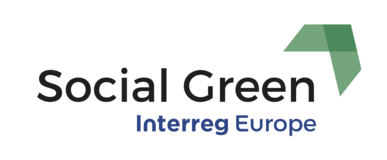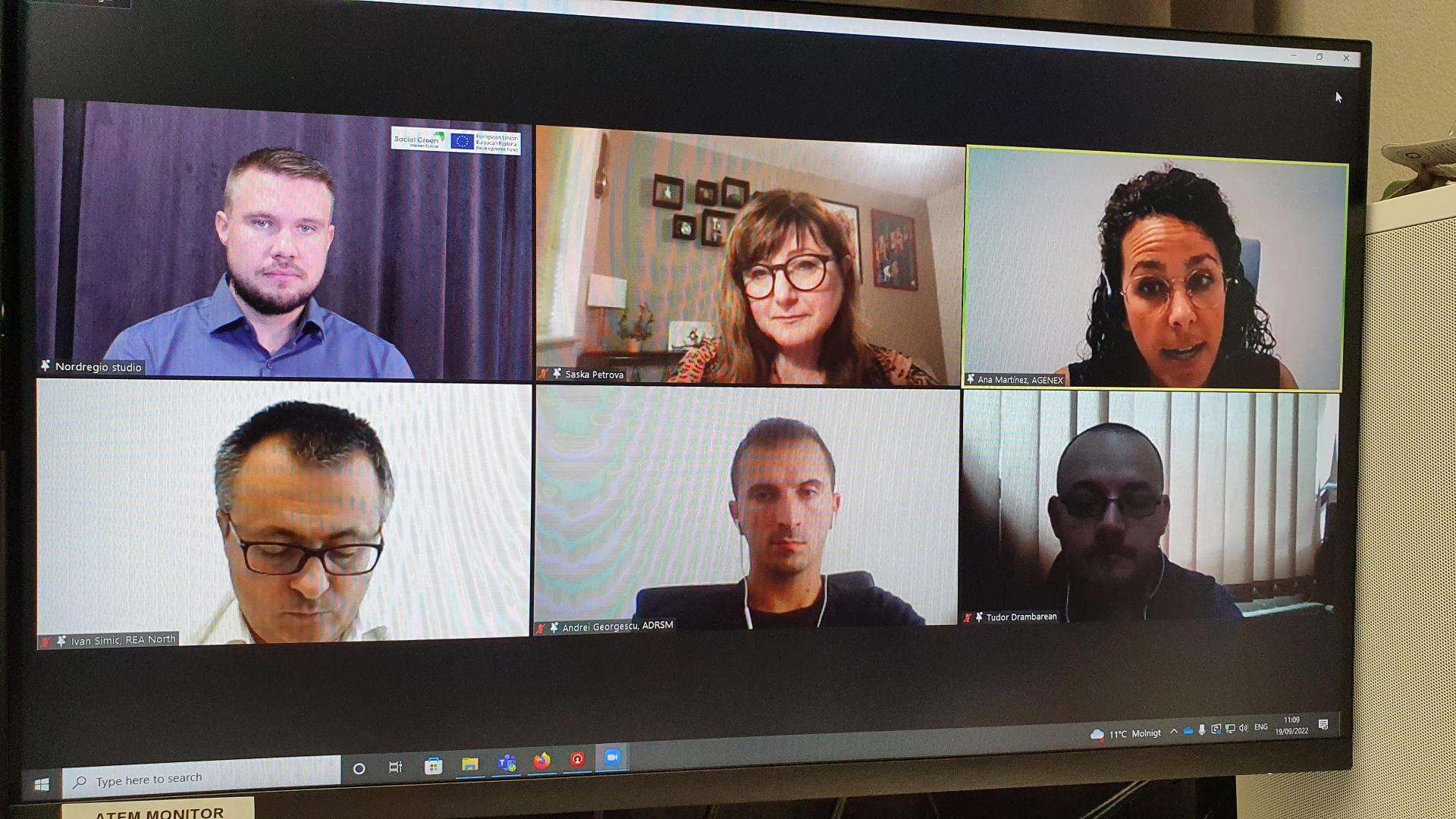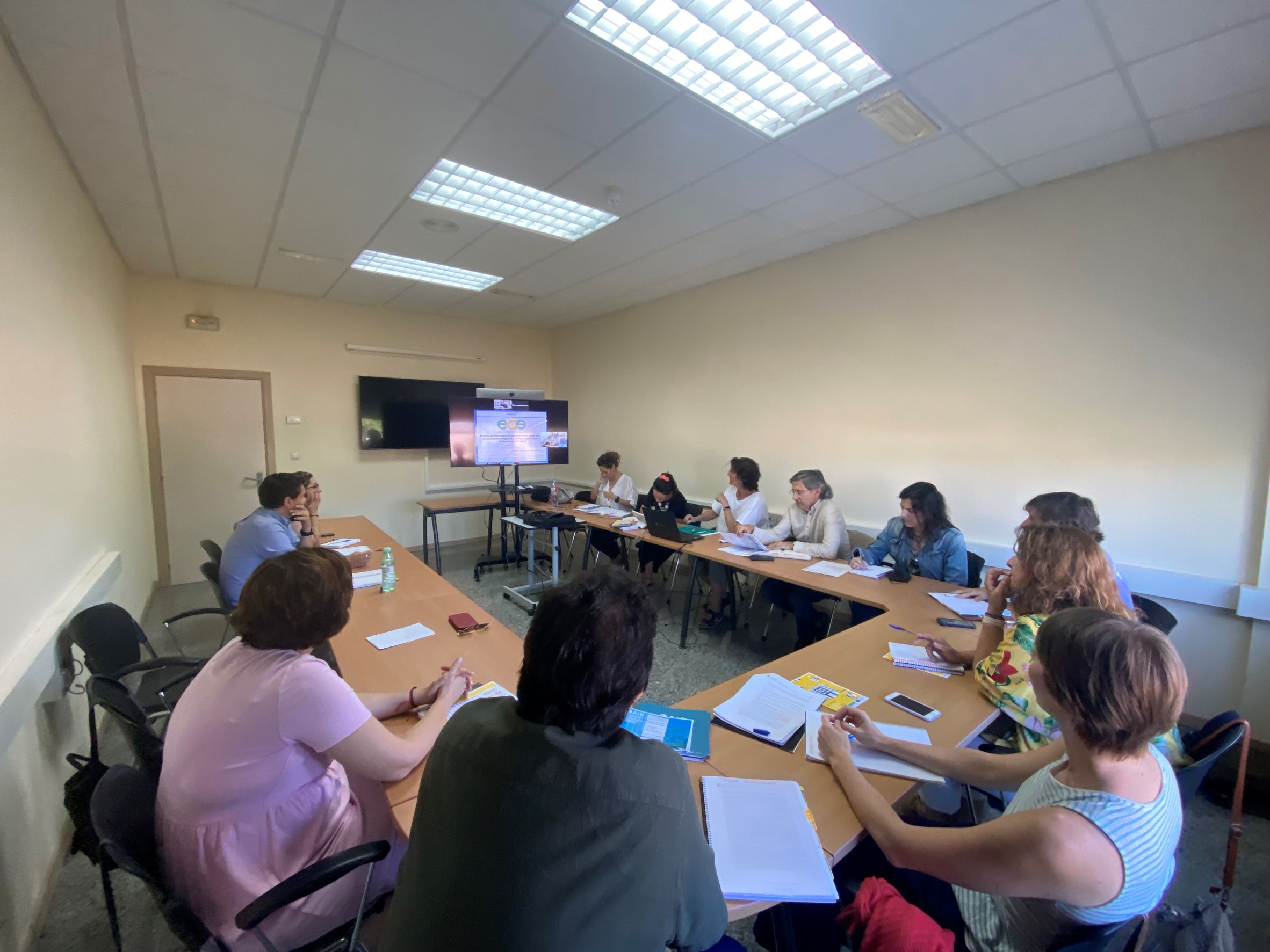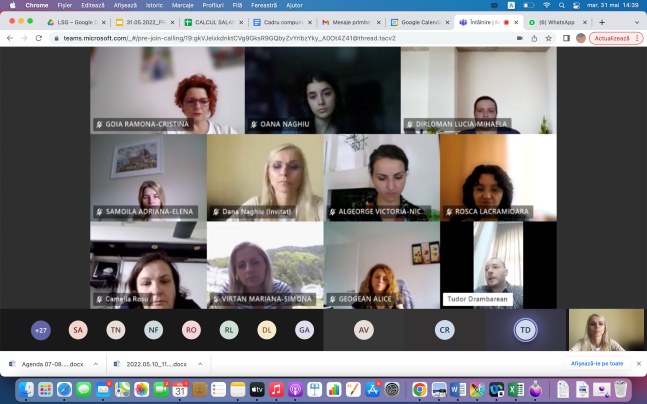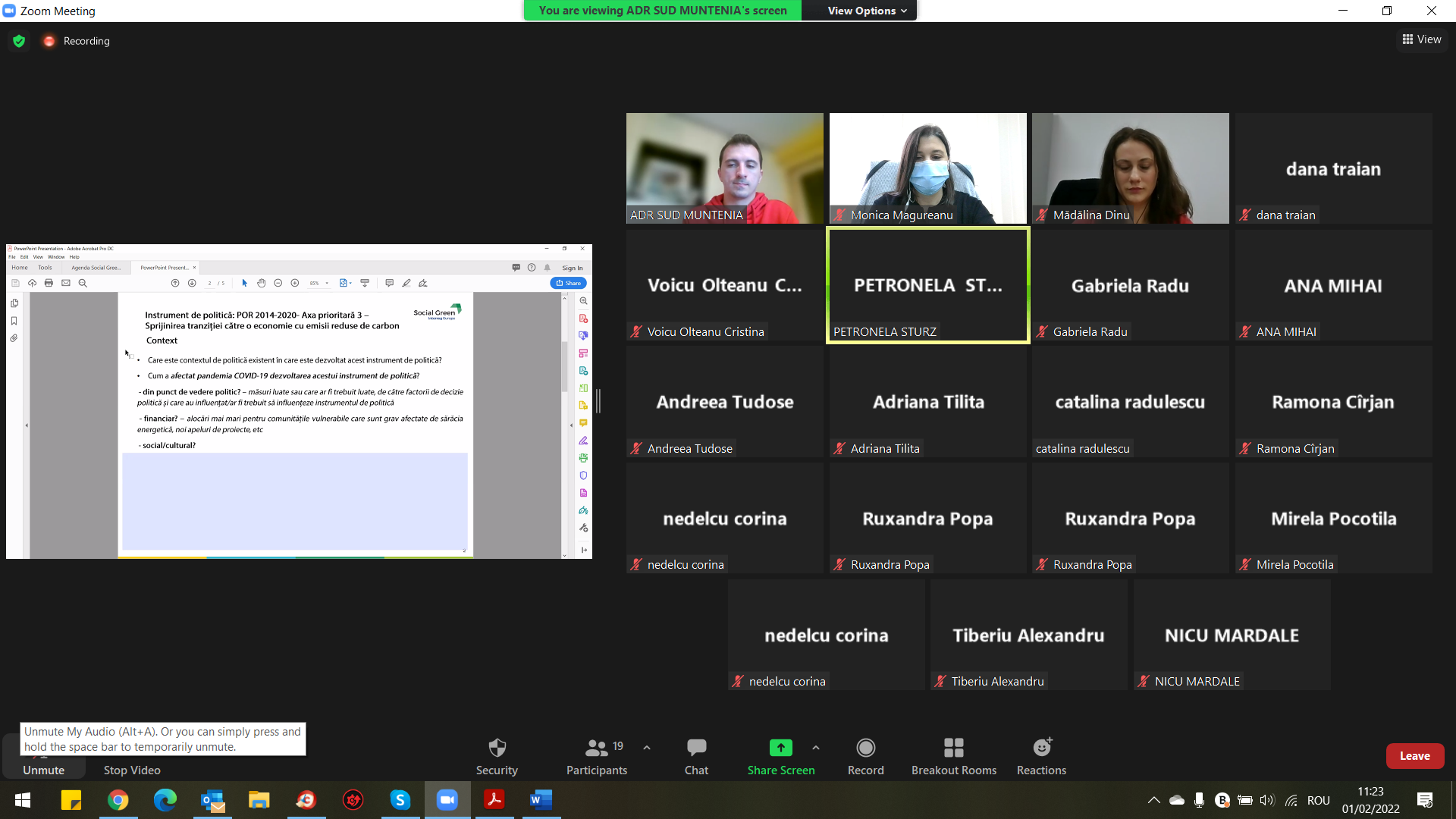In this first of three interregional meetings, partners presented their policy instruments to one another to provide context for the work ahead. The bulk of the discussion then centred around identifying good practices of combatting energy poverty in each region, with particular interest in examples that responded to the exacerbated conditions due to the COVID-19 pandemic. After sharing initial good practices, lead partner institution Nordregio facilitated a Good Practice workshop in which partners could discuss obstacles related to the work of green retrofitting, identify which aspects of other partners’ good practices could be implemented in their own context, identify potential barriers for implementing good practice ideas, and discuss among one another how the different practices are operationalised in order to gain more clear insights of the work.
Many partners expressed interest in the REHABITA programme presented by Agenex. Partners who share the problem in their region with abandoned homes found the programme inspiring with potential transferrable application. While finances were discussed as a major obstacle for several of the authorities, Agenex explained how funding for them has not been the primary challenge; rather, they suffer from determining the most useful way to allocate the funds, especially those that have an expiration date due to the funding scheme regulations. Partners also shared the common concern of communicating well with citizens whose support/approval is necessary for the renovation work. For some regions, scepticism of government involvement from the tenants is a challenge to successful retrofit work, while others face the challenge of the programme language, such as REAN, who is working to influence a policy instrument for energy solutions that exclusively targets homeowners (and not tenants renting their apartments).
At this point in the project, the lockdown situations are still affecting partners’ ability to meet with local stakeholder groups face-to-face. However, most partners have been able to host digital meetings, and, despite the circumstances, all suggested that local stakeholder groups involve the necessary members for the project work, the members actively participate, and these discussion groups are undoubtedly worthwhile. Partners will now turn towards conducting a two-part self-assessment before the next interregional meeting in February.
